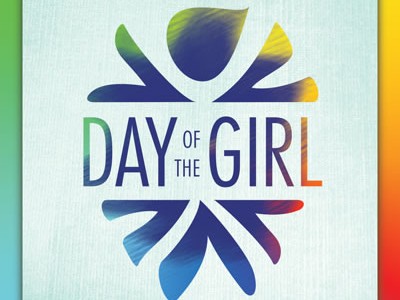The Power of the Adolescent Girl
International Day of the Girl Child
11th October 2015
 International Day of the Girl Child (Day of the Girl) is celebrated annually on October 11 to highlight issues concerning the gender inequality facing young girls. This year’s theme is “The Power of the Adolescent Girl: Vision for 2030.” There are nearly 600 million girls aged 10 to 19 in the world today, each with limitless individual potential, however they are disappearing from public awareness and the international development agenda.
International Day of the Girl Child (Day of the Girl) is celebrated annually on October 11 to highlight issues concerning the gender inequality facing young girls. This year’s theme is “The Power of the Adolescent Girl: Vision for 2030.” There are nearly 600 million girls aged 10 to 19 in the world today, each with limitless individual potential, however they are disappearing from public awareness and the international development agenda.
The International Day of the Girl child encourages us to reflect and celebrate the power and potential of adolescent girls and inspires us to renew our commitment to empowering girls. It is time to move beyond awareness-raising, and to support adolescent girls as they shape the present and become leaders of the future. It is time to consolidate good practice and focus on actions that will pave the way for a better and more equitable future for adolescent girls.
Throughout the world, adolescent girls are at risk of disappearing from the international development agenda and public awareness. Despite progress in many areas, adolescent girls are in danger of disappearing from lack of education or because of preventable diseases, or harmful socio-cultural practices like child marriage and so on. They are disappearing from lack of investment in policies, interventions and services tailored to their specific needs and concerns.
We as Asian churches and councils and ecumenical organisations are called to recognize, respect and develop the limitless potential of adolescent girls by encouraging and advocating targeted investments in affordable and accessible education, adequate health care and all round development of the girl child. We are encouraged to recognize the difference that the empowerment of adolescent girls will make to the well-being of family, society and world.
Upholding and preserving the rights and dignity of children, especially the girl child has been a priority with the Christian Conference of Asia for many years. The CCA is committed to raising awareness and advocacy on issues like overcoming violence in any form against women and children which includes migration, trafficking and forced labor; and in empowering the youth through leadership training and other capacity building initiatives. Let us use this opportunity to highlight the importance of social, economic, and political investment in adolescent girls both today and in the future.










